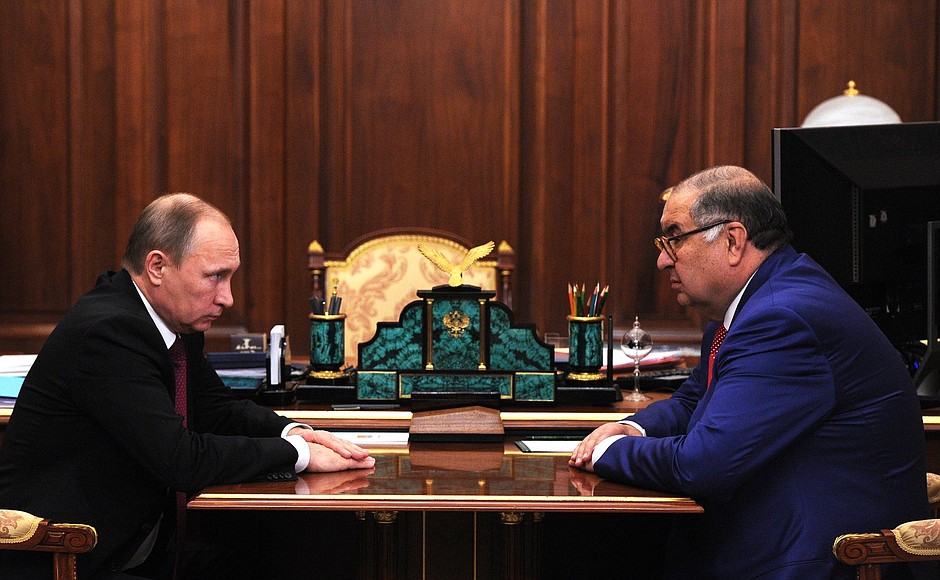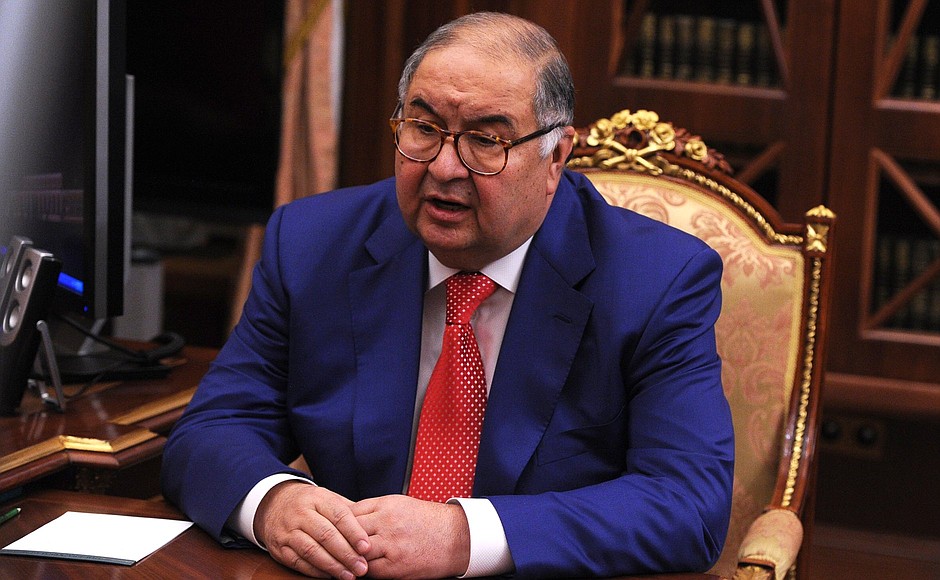President of Russia Vladimir Putin: Mr Usmanov, you are the President of the International Fencing Federation. We will definitely touch upon this, bearing in mind that today is Olympic Athlete Day. Our National Olympic Committee is holding events in Moscow to mark it. However, I would like to begin with the production part. I would like to hear how your holding company is doing, what are your sales volumes, what is the situation on the markets, how are you resolving social issues for your staff, what is the average salary and so forth.
Head of USM Holdings Alisher Usmanov: Frankly speaking, this year a number of objective and subjective factors have led to a situation whereby even successful companies, including those within our holding, have registered lower sales, but not in terms of volumes of goods, but in terms of their dollar equivalent.
The situation on the international raw materials markets has deteriorated significantly, and as for the cost of the services we provide on the territory of Russia, for which we charge rubles, there are also problems with working assets. We are becoming smaller, but our overall sale of services this year was about 700–800 billion rubles. This is less than last year, but that again has to do with the price of the goods.
I would like to draw you attention, Mr President, to a very unexpected development, but it is very important, something we need to pay attention to: generally the volume of non-raw materials export is growing in the Russian economy. I hope the Government will see this and help those industries where we can see growing export, which means a growing demand for our produce.
This is the result of your policy, your support for import replacement by companies. Thus, we used only Russian equipment to build our latest complex, which we commissioned in 2015. Our kiln, which gave a new technological boost and created competitive conditions for our company on the metallurgical fresh feedstock market, was made in Russia. I believe that this trend should be supported – this is the first time in 2014–2015 that the export of non-raw materials exceeded that of raw materials. This is a serious tendency.
In our group, non-raw materials, in this case highly processed raw materials, began to generate more income than the initially processed concentrate and pellets, which we are happy about.
As for our group in general, given today’s situation, we are addressing problems successfully. We cannot pay more taxes than we were paying before because the volume of sales is lower and income is also lower. But we are taking the President’s example and fulfilling our social obligations to our workers.
Over the past five years, we have invested about 60 billion rubles in each of the regions (I don’t want to list them, I’ll just give you a summary) into our holding company’s social and charity programmes. I think that the governors of the regions where we are working can tell you all about it. I feel this is a high-priority objective for us, for entrepreneurs to help the government deal with the hardships due to the international circumstances and the political situation. We will certainly continue this course of action through to the end.
Vladimir Putin: What is the average salary in your company?
Alisher Usmanov: Sixty to eighty thousand rubles for manufacturing; miners receive even more, 100,000 rubles, while those at enterprises like Megaphone receive less, with an average salary over 30,000. But our programmers are paid good money, and we also feel that this is very important today: supporting tech companies. These young staff members who will create the IT product, which incidentally is also exported, must have good salaries so that they are happy to be working at our company and in Russia.
<..>

